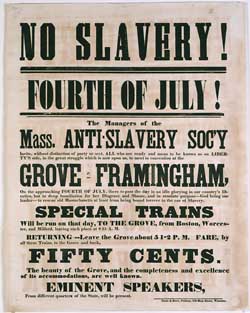- Jul 2015
-
www.theatlantic.com www.theatlantic.com
-
I am not a cynic. I love you, and I love the world, and I love it more with every new inch I discover. But you are a black boy, and you must be responsible for your body in a way that other boys cannot know.
A powerful lesson .. a truth in America ... and a gift from a father to a son that all that comes before leads to ...
-
Never forget that we were enslaved in this country longer than we have been free. Never forget that for 250 years black people were born into chains—whole generations followed by more generations who knew nothing but chains.
I saw this reference in a review of the book ... amazing to think about ...
-
I have raised you to respect every human being as singular, and you must extend that same respect into the past.
A great lesson ...
-
I, like every kid I knew, loved The Dukes of Hazzard. But I would have done well to think more about why two outlaws, driving a car named the General Lee, must necessarily be portrayed as “just some good ole boys, never meanin’ no harm”—a mantra for the Dreamers if there ever was one.
How did we all get hooked into that show and its underlying narrative?
-
But my history professors thought nothing of telling me that my search for myth was doomed, that the stories I wanted to tell myself could not be matched to truths.
What? Is that true? or perception of the past?
-
Why are they showing this to us? Why were only our heroes nonviolent?
Interesting ... and this is what we show and explain in school today, too, right? Peaceful protest ...
-
I knew that my portion of the American galaxy, where bodies were enslaved by a tenacious gravity, was black and that the other, liberated portion was not. I knew that some inscrutable energy preserved the breach.
This seems to be the center of this whole piece, in my opinion.
-
To be black in the Baltimore of my youth was to be naked before the elements of the world, before all the guns, fists, knives, crack, rape, and disease. The law did not protect us.
This was the reality of despair. Or is the reality of despair. How do we fix this? How?
-
There is nothing uniquely evil in these destroyers
I don't agree. Maybe not uniquely. But evil, nonetheless.
-
What I told you is what your grandparents tried to tell me: that this is your country, that this is your world, that this is your body, and you must find some way to live within the all of it.
Man. Powerful moment. I can see him. I can see his son. I see the shadows of history. And even in the sadness, I see something .. a glimmer. Perhaps, as a father, I am projecting. So be it. This is one of those moments, the lesson that will linger.
-
I was sad for you
This phrase makes the political so personal, as he intends. It really hits the heartstrings .. and I feel like I am intruding here, don't you? As if I shouldn't be reading this talk between father and son ... as if annotating in the margins is infringing on that bond that the writing is creating. Or is that me?
-
And I remembered that I had expected to fail.
This is a sad commentary on our times, when such an articulate man either can't find the words, or has the words but know they won't matter. Or something else I am not privy to.
-
JUL 4, 2015
Hard not to relate this piece to another great statement of African American experience: Frederick Douglass's 1841 speech “What to the Slave Is the Fourth of July?”

-
lose my body
I'm just trying to imagine how it might make Coates son squirm to have his dad talk to him about his body. I guess I'm squirming a bit too. I'm expecting to hear about racism, but here I'm being asked to think about a body.
-
- Apr 2015
-
www.ncbi.nlm.nih.gov www.ncbi.nlm.nih.gov
-
Subcellular Anatomy Ontology
The Subcellular Anatomy Ontology has now been subsumed into the Gene Ontology Cell Component ontology. Roncaglia et al. 2013
-
hrough these relationships, the SAO allows us to relate macromolecules to subcellular structures, parts of cells to a whole cell or to higher-order brain structures.
These relationships were not subsumed by GO Cell Component.
-
that takes advantage of first-order logic
Not sure that this statement is correct, that is, does ontology require the use of first-order logic.
-
experimental methodologies tend to reveal only a limited aspect of nervous system organization
"tend"? I wonder why I used such a weak word here. We do not have any experimental methodology that reveals a complete picture of nervous system organization.
Tags
Annotators
URL
-